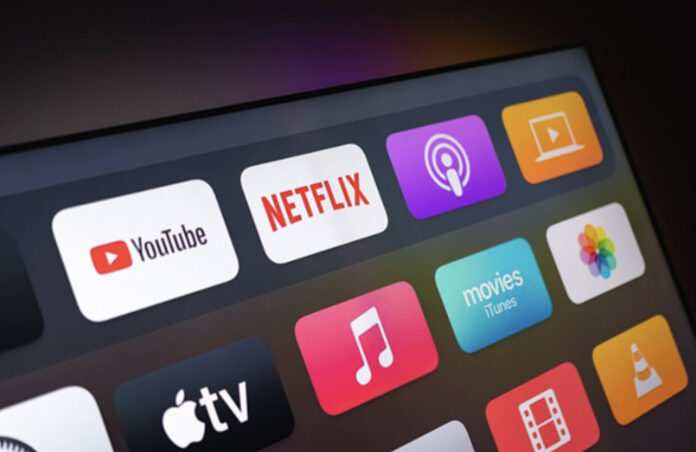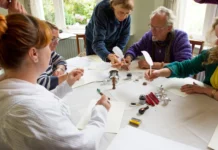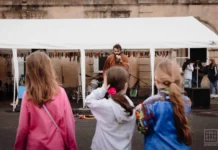
From streaming series to social games and virtual casinos, Ireland’s entertainment habits have gone through a quiet revolution. Digital platforms are now part of daily life, and this shift is clear in how Irish users spend their free time.
One growing sector is online gambling. With more people choosing to play games digitally, real money casinos available in Ireland are seeing a sharp rise in traffic. This change reflects a broader trend: entertainment no longer depends on location or schedule.
Streaming, Gaming, and the Rise of the “Always On” Lifestyle
Over the past five years, streaming platforms have become the primary source of content for Irish households. Services like Netflix, Disney+, and local options such as RTÉ Player allow users to watch what they want, when they want, without being restricted to traditional TV schedules.
Gaming has also evolved in a similar direction. While console gaming remains popular, mobile and online games are on the rise. From fantasy football apps to casual puzzle games, Irish users are increasingly spending their leisure time in virtual worlds. This shift towards online interaction has led to more social gaming, where players can chat and play with friends simultaneously.
For younger audiences, a digital-first approach is now the norm. Platforms like TikTok, Twitch, and YouTube have become primary entertainment sources, often replacing passive viewing with active participation.
Casinos and Betting Are Now Digitalised
One of the most significant changes in entertainment is the transition to online betting and casino games. Ireland has a strong gambling heritage, especially in sports betting and poker, and this legacy is now moving online. Users are no longer confined to physical venues; they are opting for top platforms that offer secure, fast, and localised gaming experiences.
Websites tailored for Irish players provide euro payment options, customer support during GMT hours, and popular games like roulette and Gaelic-themed slots. This trend reflects a broader movement to adapt global technology to local preferences. Players want platforms that feel relevant to them, not generic.
Directories like BetinIreland play a crucial role in this landscape. These guides help players compare features, bonuses, and trust levels, making it easier to choose a safe place to play. Transparency and trust are paramount for Irish players, especially when it comes to handling real money online.
Social Media Isn’t Just for Scrolling Anymore
While platforms like Instagram and Facebook are still widely used, their roles have evolved. Entertainment now encompasses more than just passive viewing; it includes interacting, commenting, and even creating content. Irish creators are making a name for themselves on TikTok, streaming games on Twitch, and transforming hobbies into side hustles on YouTube.
Social media is also where much of the discovery of digital entertainment occurs. From comedy reels to casino tips and live sports discussions, the content is endless, and users often find themselves transitioning from a quick scroll to an hour-long viewing session without realising it.
The impact of this shift is significant, as these platforms are deeply integrated into daily life. Whether commuting, relaxing at home, or on a lunch break, Irish users remain connected.
Looking Ahead: What’s Next for Ireland’s Digital Entertainment?
The next phase in Ireland’s digital entertainment evolution is likely to focus on personalisation. While platforms already use algorithms to suggest what to watch or play next, future technologies may go even further by offering fully customised experiences tailored to individual behaviour, mood, or even voice input.
Augmented reality (AR) and virtual reality (VR) also have substantial potential. As technology becomes more affordable and accessible, immersive entertainment may soon become the norm. Imagine virtual concerts, AR-enhanced sports viewing, or VR-based casino tables.
Moreover, we can expect more crossover between different forms of media. Gaming elements may be integrated into TV shows, live chats during sporting events, or story-driven slots based on trending series. These hybrid experiences are already emerging and will likely become more mainstream.
Conclusion: Everyday Life, Digitally Enhanced
Digital entertainment is no longer just a pastime in Ireland, it’s now central to everyday life. From mobile games to streaming and social media, Irish users are consuming and creating content on the go. Traditional venues face stiff competition from personalised, on-demand platforms. This digital transformation has fundamentally altered Irish social dynamics and daily routines.
With smartphones in hand, people are now blending entertainment, connection, and culture in real time. This accessibility has created a generation that expects instant gratification and seamless integration between entertainment, social connection, and daily life, marking a permanent change in Ireland’s cultural landscape.











